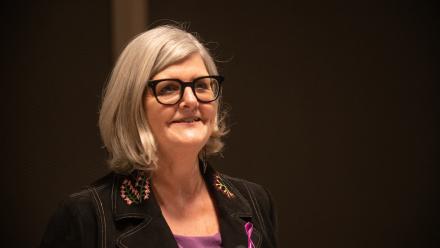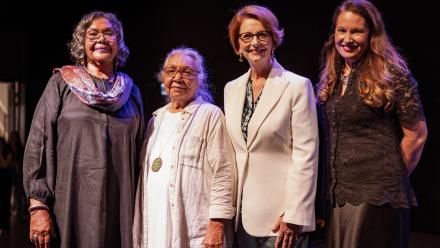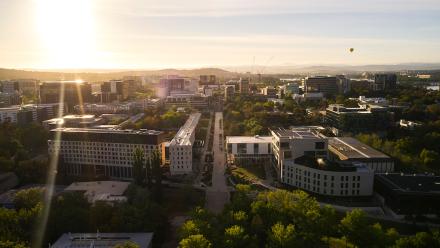Storing Australia's energy
The ACTEW Water/ActewAGL Endowment, which was jointly established by the water and wastewater company ACTEW Water and electricity and gas utility ActewAGL, is funding a grant program that encourages researchers to investigate renewable energy and water sustainability.
The ACTEW Water/ActewAGL Research grant Program has been in place since 2010 to award competitive grants of up to $50,000 for research projects aligned with the organisations' strategic objectives. In total it has funded 15 projects with almost $500,000 of generated income from the perpetual endowment. The projects have included investigating customer willingness to pay for electricity and gas network services, the use of tree rings to construct climate river flow records and enhancing freshwater ecosystem monitoring using environmental DNA and next-generation sequencing.
One of the latest projects, conducted by researchers Dr Karen Hussey and PhD candidate Keith Sue, is investigating the potential for new technologies in energy storage to be used to take the pressure off Australia's National Electricity market, and in turn provide greater and cleaner energy security.
"The whole idea of storage technologies is to move the supply of electricity from one time to another. Depending on the speed and duration that this can be done, however, different technologies can provide different services to the electricity network," said Keith.
"For example there is a fantastic opportunity for energy storage to assist the deployment of solar panels, particularly at the residential level. Solar power is generated at its greatest level during the middle of the day, which doesn't necessarily correlate with when this energy is required. Residential-scale storage has the potential to rectify this imbalance.
"Perhaps the most interesting and potentially valuable use for storage, however, is to reduce the amount of poles, wires, and generators required in the network. Much of the network is only used for very short amounts of the year when demand peaks. By minimising these peaks through the use of storage, the requirement for large investments can potentially be deferred or mitigated altogether."
The project is focussing on the ACT with the intention to take it much further.
"We used the ACT as our case study, not the least because ActewAGL has very impressive strategic goals in relation to renewable energy generation and greenhouse gas emission reductions, and we felt it had the potential to demonstrate national leadership in sustainability (if the policy and institutional settings allowed it to)," said Karen.
The research focus is on examining whether or not Australia's current regulatory and institutional arrangements actually enable, or potentially prevent, the opportunity for these technologies to be integrated into the Australian electricity market.
"A company like ActewAGL doesn't exist in a vacuum – they are bound by complex institutional, regulatory, economic and even social arrangements that mean they are encouraged and enabled to do some things, and not to do other things.
"Similarly, technological innovation and the dissemination of that innovation doesn't happen in a vacuum: policy settings will determine the success of one technology over another.
"Our project is important because it sheds light on whether a company like ActewAGL can embrace a new technology that offers public benefits, or whether it is constrained by the policy and institutional settings that it operates in."
Karen and Keith's work has benefited from more than just the financial side of the grant.
"We really valued the opportunity to work on a project that was relevant to the industry, but where we also had the freedom to design the project ourselves and conduct it with the usual rigour and objectivity that ANU is known for," explained Karen.
"The opportunity to work closely with experts within ActewAGL, and indeed to draw on their networks, gave us essential access to people in the industry who were keen to be involved and to provide their input.
"I think that in many ways philanthropic organisations are in a unique position to fund projects that might not otherwise be funded, for example, high-risk high-return research, or research that demands multiple disciplines or multiple inputs from within and without the academy."
As for the results, one thing is for sure - change is coming and the electricity sector will need to adapt to meet the market.
"People are becoming more concerned about their power consumption and are more willing to embrace technologies at the household level.
"The organisations which currently operate in the electricity sector will need to learn how to adapt, which is something they really haven't been forced to do in the past. They will need to think about how they interact with new technologies such as energy storage, and be willing to adjust their business models should they become less tenable," explained Keith.


